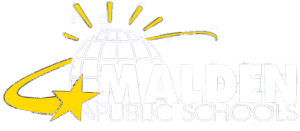January Newsletter 2016
“Pit race against race, religion against religion, prejudice against prejudice. Divide and conquer! We must not let that happen here.”
― Eleanor Roosevelt
Without jinxing us for the rest of the winter, we survived the month of January without a snow
day. Let’s keep our fingers crossed while we wish for a warm, snowless month of February. We
ended our month of January with a professional development day which highlighted a training on
cultural sensitivity. I feel this training came a good time for us and I thank the staff who
participated.
Cultural Sensitivity can best be defined as a consciousness and understanding of the morals,
standards, and principles of a specific culture, society, ethnic group or race, joined by a
motivation to acclimate to one’s actions with such. When I was growing up in East Boston, my
interaction with diversity was limited. Most people I knew were either Italian or Irish; they were
Catholic, and predominately white. It wasn’t until I went to Northeastern University that I
actually met someone of the Protestant faith. My lens on diversity was shaped by grandparents
and parents who had less exposure to diversity than I did. They grew up in a time when there
wasn’t a great deal of integration, and tolerance for differences was limited. I grew up listening
to comments such as, “Why don’t those people just get a job?!” or “People like that just don’t
want to work hard, that’s why they will never get better.”
As I grew older, in all honesty I grew older before I matured, my exposure to diversity grew. My
road to maturity started when I had my first child, a healthy little girl. All of a sudden terms like
“throw like a girl” or “run like a girl” took on a negative tone. Statements like that were no
longer funny when you are the father of daughter, and you begin to recognize how you behaved
growing up. In a split second when the doctor says “Congratulations, it’s a girl” dozens of past
actions, comments, and stereotypes flash into your mind. Having a daughter accelerated my
maturity on the subject of sexual biases.
My path to diversity maturation continued as I started to teach in urban districts. I began to gain
a better understanding of the struggles that were facing students and families in cities like Salem,
Chelsea, and Revere. By working with a variety of minority groups, I found myself face-to-face
with some of the biases I had growing up. It became clear to me that the families I was working
with were motivated and making attempts to improve their lives. I began to realize and respect
the complexities some of our families faced on daily basis. Many of the parents I grew to know
were hard working adults who put a huge level of trust in us as educators. I saw firsthand single
parents putting in long days trying to make ends meet and yet still invested in their child’s life at
school. After years in urban school districts I found a deep respect for the uphill battle many
faced to improve their lives.
As my professional maturity increased I found myself starting to monitor my language. I stopped
saying ‘those kids” started using ‘our kids’ when describing subgroups in our school buildings. I
made a conscious effort not to “judge a book by its cover” when dealing with students and
families. By the time I ended my tenure as principal of Revere High School, I was in a different
place with regards to the stereotypes, biases, and preconceived notions I possessed about people,
cultures, and social issues. At 47 years old the world looked a great deal different than it did
when I was 25.
Cultural awareness, identifying our own biases and prejudices, and examining the stereotypes we
carry is the first step in creating a climate and culture that will impact the social, emotional, and
physical well-being of a school district. At a recent conference the keynote speaker, Dr. Greene,
asked us in the group, “What skills foster the positive side of human nature?” He highlighted the
following: Empathy, Appreciating how one’s behavior is affecting others, Resolve
disagreements in ways that do not involve conflict, Taking and understanding another’s
perspective, and Honesty. These skills spell EARTH.
Teachers and administrators shape social and cultural norms. Our students look to us to help
guide them, educate them, and develop them as strong human beings. We have made great
progress closing an achievement gap. Our students are showing strong, steady growth in
academic achievement. For this you should all be proud. My question at this time is “Are we
ready to tackle the next hurdle and begin the work to close the social-emotional gaps in our
students, and in ourselves?”
We started this work with several staff members on Friday involved in a professional
development day focusing on cultural awareness. To change a climate and culture of school
district to ensure it embraces the skills to support and develop the ‘positive side of human nature’
is no easy task. It starts with each and every one of us admitting we need to address the
stereotypes and biases we all possess, and work hard to ensure they don’t impede our ability to
work with others.
Okay, I jinxed us!!! Enjoy the snow day.
Dave




Leave a Reply
Want to join the discussion?Feel free to contribute!